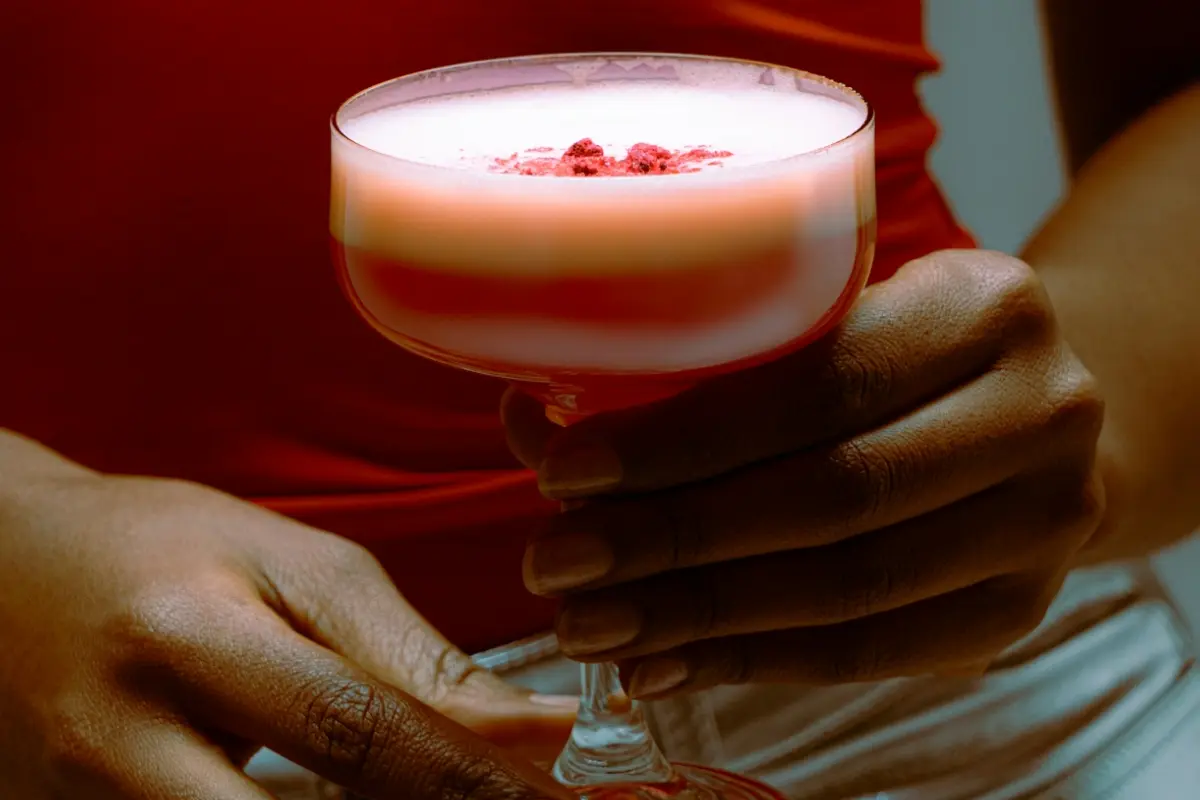

Does Alcohol Affect Fertility?
Discover how alcohol affects fertility in women and men. Learn how drinking impacts ovulation, conception chances, and fertility treatments like IVF.
Words by Olivia Cassano
Scientifically edited by Dr. Krystal Thomas-White, PhD
Medically reviewed by Dr. Kate McLean MD, MPH, FACOG
When you're trying to conceive, there's a good chance you’ve already started paying closer attention to your lifestyle — cutting back on caffeine, eating better, even tracking your fertile window religiously. But one big question many women still wonder about is this: Does drinking alcohol affect fertility?
The short answer is: yes, alcohol can affect fertility in both women and men. But before you panic over that glass of wine you had with dinner, let’s take a deeper look at what science actually says about alcohol and fertility, what’s considered “too much,” and how your partner’s habits come into play, too.
Does alcohol affect fertility?
Yes, drinking alcohol can affect your chances of getting pregnant, but evidence suggests that it depends on how much you drink.
A systematic review and meta-analysis found that drinking alcohol can lower the ability to get pregnant. Moderate to heavy drinkers (those who drink more than 12.5 grams per day) had a significantly higher risk of decreased fecundability — the probability of achieving a pregnancy within one menstrual cycle — compared to light drinkers (those who consume 12.5 grams of alcohol or less per day).
Another study highlighted that heavy alcohol intake, defined as more than six drinks per week, particularly during the luteal phase and ovulatory subphase of the cycle, is associated with reduced fecundability. Even moderate alcohol intake (three to six drinks per week) during the luteal phase was linked to similar negative effects.
These findings suggest that while the occasional drink may not totally derail your chances, regular or heavy drinking during critical parts of your cycle can make it harder to conceive.

Recurrent symptoms? Get Evvy's at-home vaginal microbiome test, designed by leading OB-GYNs.
How alcohol affects female fertility
Drinking alcohol doesn’t just impact your liver and your mood, it can also interfere with the reproductive hormones that regulate your menstrual cycle and ovulation (key players when it comes to getting pregnant).
Hormonal disruption
Alcohol can affect the hypothalamic-pituitary-gonadal axis, which plays a key role in regulating the reproductive hormones necessary for ovulation and implantation.
This means that alcohol can disrupt important hormones like estrogen, luteinizing hormone (LH), and follicle-stimulating hormone (FSH). These hormones are crucial for maintaining a healthy menstrual cycle and ensuring timely ovulation.
When this system gets disrupted, you might experience irregular periods, delayed ovulation, or even anovulation (where no egg is released). These changes can make it a bit trickier to predict when you’re most fertile and might also reduce the number of chances you have to conceive during the year.
Even low to moderate alcohol consumption (just a few drinks a week) has been linked with decreased fertility in some studies. A large Danish study published in The BMJ followed over 6,000 women and found that even small amounts of alcohol (about one drink per day) could lower the chances of conceiving in any given cycle.
Impact on egg quality
There’s also evidence that drinking alcohol may impact the quality of your eggs. You’re born with all the eggs you’ll ever have, and as you age, both the quantity and quality decline. Alcohol can contribute to oxidative stress in your body, which may damage your eggs over time.
While you can find out more or less how many eggs you have left, egg quality is hard to assess, and even low-level exposure to toxins like alcohol may interfere with embryo development or implantation.
What about occasional drinking?
This is the gray area where a lot of women get confused. While heavy drinking or binge drinking is linked with reduced fertility, there’s limited evidence that moderate alcohol intake severely impacts fertility. Some experts say that the occasional nightcap might not be a dealbreaker, but others suggest avoiding alcohol altogether if you’re actively trying to conceive.
The Society for Reproductive Endocrinology and Infertility, along with the American Society for Reproductive Medicine, recommends keeping alcohol consumption to a minimum if you're trying to get pregnant.
As a general rule, the safest choice, especially if you’re not sure when you’ll ovulate, is to stop drinking altogether once you start trying. Not only does it help protect your fertility, but it also reduces the risk of fetal alcohol exposure in those early weeks when you might not even know you’re pregnant yet.
Alcohol and fertility treatments
If you’re undergoing assisted reproductive technologies (ART) like in vitro fertilization (IVF) or intracytoplasmic sperm injection (ICSI), it’s important to know that alcohol intake can greatly affect fertility treatment outcomes.
Research shows that women who drink alcohol during IVF cycles might have lower success rates. A review of studies found that women who drink more than 84 grams of alcohol per week have lower pregnancy rates after fertility treatments like IVF or ICSI. Another study showed that women who drink at least four drinks a week have a 16% lower chance of achieving a live birth compared to those who drink less. When both partners drink at least four drinks a week, the chances of a live birth drop by 21%.
Even moderate drinking before treatment is linked to lower implantation and live birth rates. In contrast, women who do not drink or cut back on their drinking have better chances of getting pregnant.
How alcohol affects male fertility
We can’t talk about fertility without mentioning the other half of the equation. Cisgender men might not have monthly cycles, but their reproductive health is just as crucial to the baby-making process, and your partner’s drinking habits also play a role in conception.
Alcohol can lower testosterone production, leading to a lower sperm count. A 2014 study showed that men who consumed more than five drinks per week had lower sperm quality, including reduced motility (how well the sperm swim) and abnormal shape.
In men, alcohol also contributes to oxidative stress, which can cause DNA damage in sperm. This damage not only reduces the ability to fertilize an egg but may also increase the risk of miscarriage and developmental issues in the embryo.
If your partner is drinking during fertility treatments, it could reduce your odds of success, too. One study found that couples where both partners consumed alcohol had significantly lower live birth rates. This highlights just how important it is for both partners to be on board with healthy changes when trying to conceive.
Should you quit drinking while trying to conceive?
While the impact of alcohol may vary depending on how much and when you drink, there’s a clear link between drinking alcohol and reduced chances of conception, especially with heavy or regular intake. The Centers for Disease Control and Prevention (CDC) emphasizes that women who are trying to get pregnant should avoid alcohol entirely, and that there’s no safe amount of alcohol intake when you’re trying to conceive.
If you're on a fertility journey, know that small lifestyle tweaks (like skipping the wine) can really add up. Fertility is affected by many different factors, and while we can’t control everything, choosing to be mindful about your alcohol intake is a small step that can make a big difference.
If you’re trying to conceive and have questions about alcohol or your lifestyle, don’t hesitate to talk with your OB-GYN or fertility specialist.
FAQ
Can drinking alcohol stop you from getting pregnant?
Yes, drinking alcohol can make it harder to get pregnant, especially if you drink a lot or regularly. Alcohol can disturb the hormonal balance that controls ovulation, which can make it difficult to conceive. It affects the brain and hormonal system that releases important reproductive hormones like estrogen, luteinizing hormone, and follicle-stimulating hormone. Changes in these hormones can cause irregular menstrual cycles, delay ovulation, or even stop ovulation, meaning your body doesn’t release an egg. Additionally, alcohol can lower both egg and sperm quality by increasing stress and inflammation in the ovaries, which can reduce your chances of getting pregnant naturally.
How much alcohol is too much for fertility?
Research shows that drinking more than six alcoholic drinks each week can lower your chances of getting pregnant. This is especially true if you drink during certain phases of your menstrual cycle, like the luteal phase or ovulation. One study found that even having three to six drinks a week during the luteal phase can reduce your ability to conceive. Another review indicated that light drinkers (up to 12.5 grams of alcohol each day) had a slight drop in fertility. However, moderate to heavy drinkers (more than 12.5 grams a day) faced a much greater risk. Generally, if you’re trying to conceive, it’s best to avoid more than two drinks per day, especially if you’re undergoing fertility treatments like IVF or ICSI, where alcohol can greatly lower your chances of success.
Can alcohol affect a fertilized egg?
Yes, drinking alcohol can affect a fertilized egg, especially in those early days when you might not even know you're pregnant yet. Drinking alcohol can mess with hormonal signals and may affect the uterine lining, which is crucial for implantation. It could also influence the quality of the embryo and raise the chances of an early miscarriage. Even small amounts of alcohol can have an impact, particularly since that little embryo is super sensitive in the first few weeks after fertilization. That's why many health organizations, like the CDC and American College of Obstetricians and Gynecologists (ACOG), suggest avoiding alcohol completely while trying to conceive.





